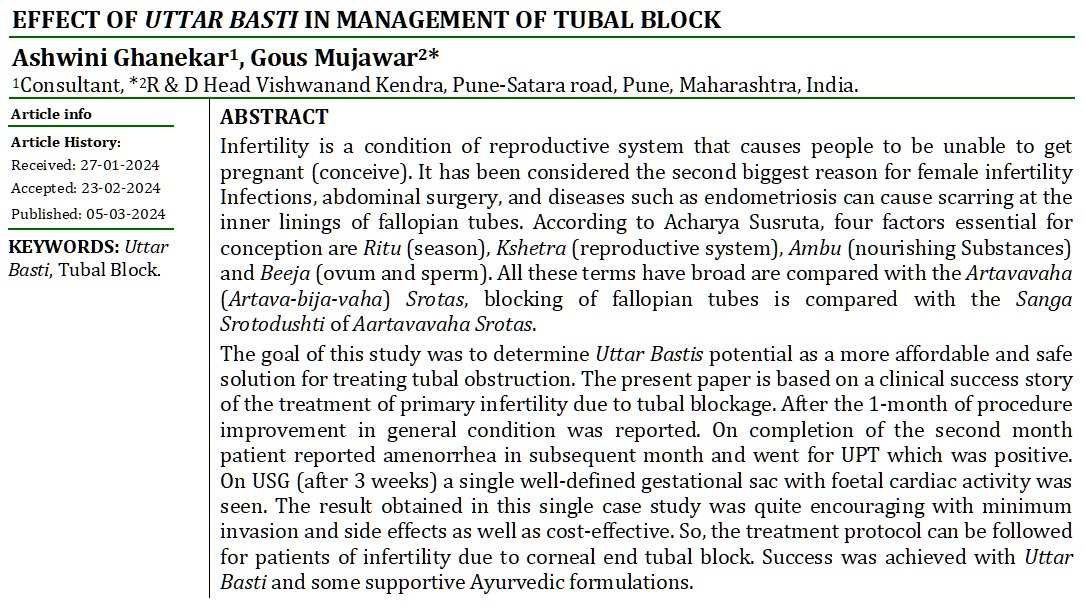Effect of Uttar Basti in Management of Tubal Block
DOI:
https://doi.org/10.47070/ijapr.v12i2.3154Keywords:
Uttar Basti, Tubal BlockAbstract
Infertility is a condition of reproductive system that causes people to be unable to get pregnant (conceive). It has been considered the second biggest reason for female infertility Infections, abdominal surgery, and diseases such as endometriosis can cause scarring at the inner linings of fallopian tubes. According to Acharya Susruta, four factors essential for conception are Ritu (season), Kshetra (reproductive system), Ambu (nourishing Substances) and Beeja (ovum and sperm). All these terms have broad are compared with the Artavavaha (Artava-bija-vaha) Srotas, blocking of fallopian tubes is compared with the Sanga Srotodushti of Aartavavaha Srotas.
The goal of this study was to determine Uttar Bastis potential as a more affordable and safe solution for treating tubal obstruction. The present paper is based on a clinical success story of the treatment of primary infertility due to tubal blockage. After the 1-month of procedure improvement in general condition was reported. On completion of the second month patient reported amenorrhea in subsequent month and went for UPT which was positive. On USG (after 3 weeks) a single well-defined gestational sac with foetal cardiac activity was seen. The result obtained in this single case study was quite encouraging with minimum invasion and side effects as well as cost-effective. So, the treatment protocol can be followed for patients of infertility due to corneal end tubal block. Success was achieved with Uttar Basti and some supportive Ayurvedic formulations.
Downloads



